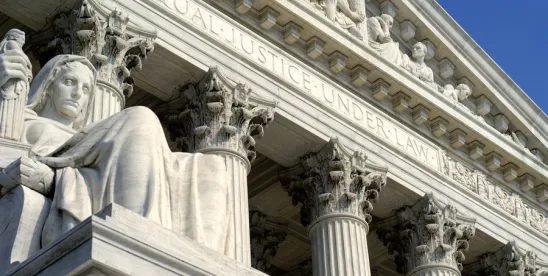Just over a month since the passing of Justice Antonin Scalia, a now-equally divided U.S. Supreme Court (4-4) issued a single-page per curiam opinion on March 29 affirming the Court of Appeals for the Ninth Circuit’s decision in Friedrichs v. California Teachers Assn., which allows public-sector unions in California to charge compulsory union fees to employees. This decision, while unsurprising considering the makeup of the court without Justice Scalia, had been expected to be a loss for big labor when the case was argued before the court in January.
In upholding a lower court’s ruling, the Ninth Circuit had cited the Supreme Court’s Abood v. Detroit Board of Education decision, which was published in 1977 but has recently been called into question by conservative-leaning Justices in multiple cases, including Harris v. Quinn and Knox v. Serv. Emps. Int’l Union. At oral argument in Friedrichs, Justice Scalia, in particular, appeared unpersuaded by the unions’ arguments and it was expected that he, along with the four justices voting against Tuesday’s decision, would overturn the Ninth Circuit and the Abood decision. With Judge Scalia’s death in February and the resultant deadlock on the court, however, Abood remains the law of the land and public-sector employees continue having to pay dues—at least until another case snakes its way up to the court to be decided by a majority one way or the other.




 />i
/>i
